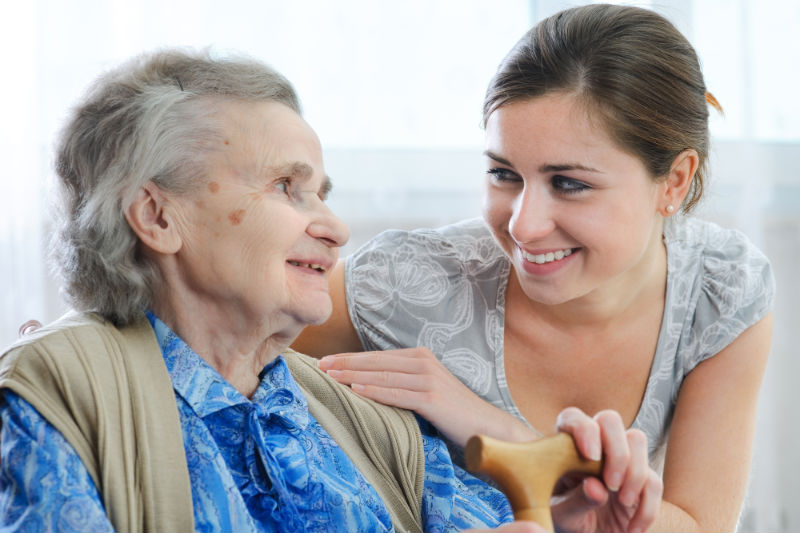As couples grow older, they often share not only years of memories but also the challenges that come with aging. From health issues to emotional changes, these experiences can influence how partners relate to and support one another. For many senior couples in Peoria, AZ, behavioral health treatment offers an opportunity to strengthen emotional bonds, improve communication, and maintain mental well-being together.
Through geriatric behavioral care, couples can navigate the complexities of aging while preserving trust, understanding, and companionship. Behavioral health programs designed for older adults provide tools and therapies that help couples manage stress, adapt to life changes, and care for one another with renewed empathy.
Understanding Behavioral Health in Later Life
Behavioral health is an essential component of overall wellness, encompassing emotional, psychological, and social well-being. In later life, factors such as medical conditions, loss of independence, grief, and cognitive decline can contribute to behavioral or emotional changes.
For senior couples, these challenges may lead to misunderstandings, frustration, or withdrawal within their relationship. When one partner struggles with depression, anxiety, or memory loss, it can impact the emotional dynamic between both individuals.
Geriatric behavioral care in Peoria, AZ focuses on identifying these issues early and providing therapeutic interventions tailored to seniors’ unique needs. This approach allows couples to address emotional and behavioral health concerns together, strengthening their relationship and improving overall quality of life.
Common Behavioral Health Challenges Among Senior Couples
Aging often brings new emotional and psychological challenges that couples must learn to face side by side. Some of the most common issues include:
- Depression and Anxiety: Life transitions such as retirement, loss of loved ones, or changes in mobility can lead to emotional distress.
- Cognitive Decline: Memory loss or dementia can cause communication barriers and strain long-term relationships.
- Chronic Illness or Pain: Health problems can affect mood, energy, and emotional stability, impacting both partners.
- Caregiver Stress: When one partner becomes a caregiver, the shift in roles can create tension and exhaustion.
- Social Isolation: Reduced social contact may increase feelings of loneliness or detachment.
Addressing these behavioral health concerns through professional treatment helps couples regain emotional balance and mutual understanding. Therapy offers a safe space for partners to express their concerns, find solutions, and reconnect.
The Role of Geriatric Behavioral Care for Couples
Geriatric behavioral care provides an integrated approach to mental and emotional wellness for seniors. It combines medical, psychological, and therapeutic strategies to address both individual and shared challenges within a relationship.
For couples, this form of care often includes:
1. Couples Counseling and Therapy
Therapy sessions encourage open communication, helping partners express their feelings honestly and constructively. Therapists guide couples through discussions that promote empathy, patience, and trust, allowing them to resolve conflicts in healthier ways.
2. Cognitive and Emotional Support
When one partner experiences memory issues or cognitive decline, therapy helps both individuals adjust to new realities. Education and coping strategies empower couples to support each other with compassion and patience.
3. Stress and Anxiety Management
Behavioral health programs teach relaxation and mindfulness techniques that couples can practice together, reducing tension and improving emotional connection.
4. Medication and Care Coordination
Behavioral health specialists collaborate with medical providers to ensure that medication management supports, rather than disrupts, emotional stability for both partners.
Through these approaches, couples not only improve their individual well-being but also strengthen their emotional connection—a vital aspect of aging gracefully together.
How Emotional Support Impacts Healthy Aging
Emotional support is one of the strongest predictors of well-being in later life. Research shows that seniors who maintain close, supportive relationships experience lower rates of depression, better cognitive health, and improved longevity.
For couples, emotional intimacy fosters resilience against the stressors that accompany aging. Sharing life’s ups and downs becomes more manageable when both partners feel heard and supported. Behavioral health treatment encourages couples to reinforce these emotional bonds through empathy and communication.
Therapists often focus on rebuilding trust, rediscovering shared joy, and helping couples develop strategies for navigating life’s inevitable changes together. This collaborative healing process allows seniors to find comfort in companionship, even during difficult times.
The Importance of Early Intervention
Many couples hesitate to seek behavioral health care until problems become severe. However, early intervention can prevent emotional strain from escalating and improve long-term relationship satisfaction.
Recognizing subtle signs—such as withdrawal, frequent misunderstandings, irritability, or emotional detachment—is key to seeking help early. Addressing these concerns proactively allows couples to rebuild their emotional foundation before deeper conflicts arise.
Behavioral health professionals specializing in geriatric care understand the sensitivities involved in treating older adults. They provide compassionate, nonjudgmental support tailored to the couple’s stage of life and emotional needs.
A trusted, reliable mental health partner can help couples access structured programs designed to promote healing, understanding, and mutual growth.
Integrating Family and Social Support
While therapy strengthens the bond between partners, external support from family and friends also plays an important role in behavioral health recovery. Families can participate in counseling sessions to learn how to better assist their loved ones.
Encouraging seniors to remain socially engaged—whether through community activities, volunteer work, or group therapy—can also reinforce positive behavioral outcomes. These connections create a broader network of understanding and care, ensuring that couples feel supported both inside and outside their relationship.
Building Resilience Together
Aging brings its share of difficulties, but with the right support, senior couples can face these challenges as a team. Behavioral health treatment provides the tools needed to navigate emotional obstacles and maintain healthy communication. By embracing therapy and mutual understanding, couples can rediscover connection, compassion, and purpose in their later years.
Geriatric behavioral care in Peoria, AZ encourages couples to take an active role in their mental health journey, reminding them that it’s never too late to grow together. Through structured counseling, emotional education, and ongoing support, they can strengthen not just their mental well-being but also their lifelong partnership.
Final Thoughts
For senior couples in Peoria, behavioral health treatment offers a pathway to healing and renewed connection. Emotional challenges are a natural part of aging, but with professional care and family support, couples can continue to thrive together.
A strong partnership, supported by compassionate care and open communication, empowers seniors to face life’s transitions with dignity and grace—hand in hand, one day at a time.


